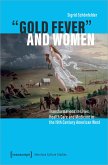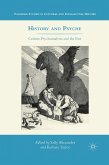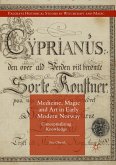In the past, our ideas of psychiatric hospitals and their history have been shaped by objects like straitjackets, cribs, and binding belts. These powerful objects were often used as a synonym for psychiatry and the way psychiatric patients were treated, yet very little is known about the agency of these objects and their appropriation by staff and patients. By focusing on material cultures, this book offers a new perspective on the history of psychiatry: it enables a narrative in which practicing psychiatry is part of a complex entanglement in which power is constantly negotiated. Scholars from different academic disciplines show how this material-based approach opens up new perspectives on the agency and imagination of men and women inside psychiatry.
Hinweis: Dieser Artikel kann nur an eine deutsche Lieferadresse ausgeliefert werden.
Hinweis: Dieser Artikel kann nur an eine deutsche Lieferadresse ausgeliefert werden.
»Die Aufsätze [glänzen] durch eine hohe Informationsdichte und die konsequente Orientierung am 'material turn', wodurch sie viel Licht ins Dunkel der psychiatrischen Alltagskulturen bringen. Impulse für ein empirisch-kulturwissenschaftliches Fachpublikum liegen hierbei nicht nur auf einer inhaltlichen Ebene [...]. Vielmehr zeigt der Band, wie gelungene und geistig anregende Wissenschaftskommunikation in Publikationsform aussehen kann«.
Patrick Pollmer, Bayerisches Jahrbuch für Volkskunde, 25.08.2022 20220825
Patrick Pollmer, Bayerisches Jahrbuch für Volkskunde, 25.08.2022 20220825








